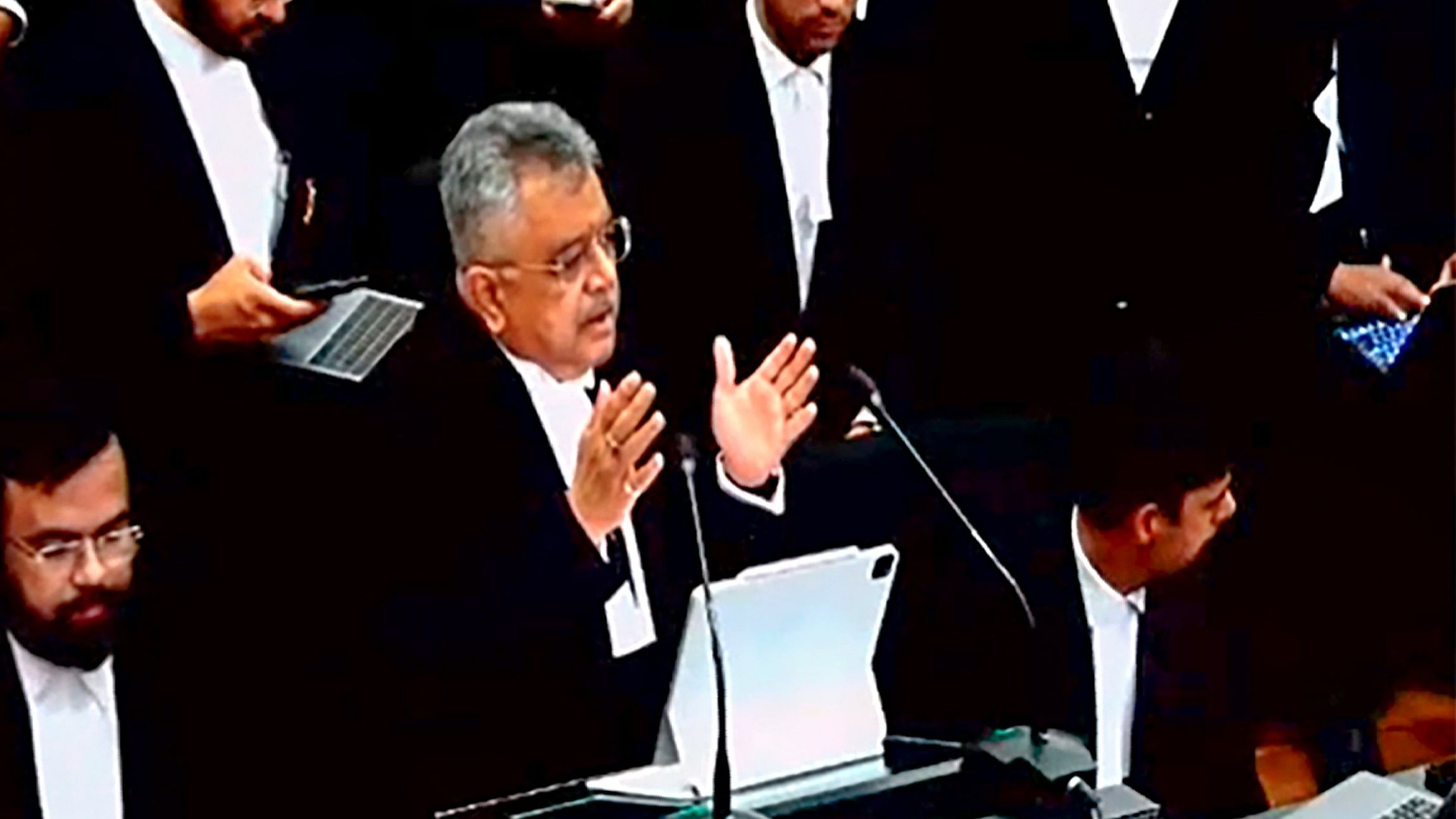
Solicitor General of India Tushar Mehta who is representing Governor Thaawarchand Gehlot
PTI
Bengaluru: The Governor is not supposed to depend on the aid and advice of the council of ministers when there are allegations against the chief minister, Solicitor General Tushar Mehta said on Saturday.
Mehta appeared on behalf of Governor Thaawarchand Gehlot before Justice M Nagaprasanna in the Karnataka High Court after Chief Minister Siddaramaiah filed a petition seeking to quash the approval granted by Gehlot to investigate and prosecute him in the alleged site allotment scam in the Mysuru Urban Development Authority (MUDA).
The MUDA scam pertains to the illegal allotment of alternative sites to various people. There are allegations that Siddaramaiah's wife is also a beneficiary of it. Siddaramaiah has dismissed these charges as baseless. Based on petitions filed by activists, Gehlot granted permission to investigate and prosecute the Chief Minister.
The court has posted the matter to Monday.
Mehta said the Governor can only say that prima facie criminal offences are made out but the investigating officer will finally decide the provision under which charge-sheet will be filed.
Section 17(A) of the Prevention of Corruption Act says that no police officer shall conduct an inquiry or investigation into any offence alleged to have been committed by a public servant under this Act. It does not talk of Bharat Nyaya Sanhita or the Indian Penal Code, Mehta said.
"The Council of Ministers under Article 163 of the Indian Constitution will have no application when the Chief Minister is facing an allegation. I am saying it's only an allegation. It is yet to be decided and the Governor is called upon to decide on Section 17A of Prevention of Corruption Act," he explained.
"Governor will only say prima facie criminal offences are made out and it will be for the investigating officer to decide under what provision a charge sheet, if any, is to be filed because the investigation may result into the filing of the charge sheet or it might result into the filing of a closure report," Mehta said.
However, in the event of filing of the charge sheet, the investigating officer will take his own independent decision based on the material of the record detailing the provisions which are attracted for the specific charges, he explained.
"As a Governor I have to see whether the complaint and the documents which are placed makes out a cognizable offence which requires investigation. It may result in a charge sheet or the report under 173 as we call it or a closure report as per the old section 169 but that’s not the call the Governor is permitted also to take. The Governor cannot say that I have examined and cognisable offence has been made out is of a serious nature," the SG said.
According to him, the Governor will go by the prima facie case whether it needs to be examined by an investigating agency.